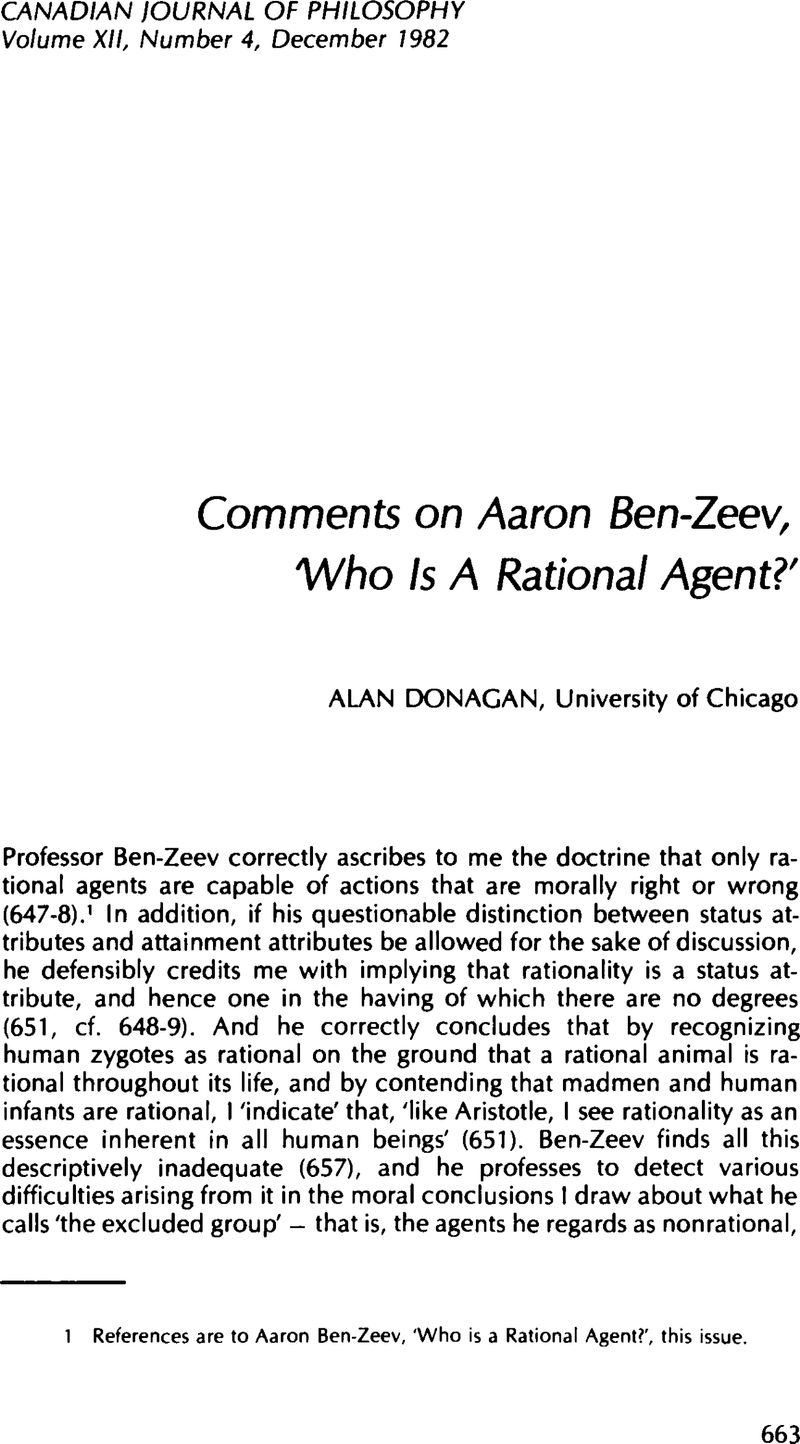No CrossRef data available.
Published online by Cambridge University Press: 01 January 2020

1 References are to Aaron Ben-Zeev, ‘Who is a Rational Agent?', this issue.
2 This question is implicit in Ben-Zeev's assertion, ‘I show that … “rational” is an attainment and not a status attribute’ (648). The quotation marks surrounding 'rational’ are presumably ‘scare quotes,’ and do not signify that what is being talked about is the word and not the attribute.
3 Aristotle, ·Metaphysics K 1060 b36-1061 a7. For a pioneering exposition of Aristotle's doctrine that remains authoritative, see Owens, Joseph The Doctrine of Being in the Aristotelian Metaphysics, 2nd. edn. (Toronto: Pontifical Institute of Medieval Studies 1963).Google Scholar ch. 3, esp. 118-23. The term ‘focal meaning’ is G.E.L. Owen's. Aristotle describes things (not linguistic expressions) as synonymous or homonymous according as the same word used to refer to them has one or more than one definition. For some cautionary considerations see Hamlyn, D.W. Proceedings of the Aristotelian Society, 78 (1977-78) 1–18.CrossRefGoogle Scholar
4 Theory of Morality, 171. Ben-Zeev quotes from this page, but he seems to have overlooked most of what is said in it.